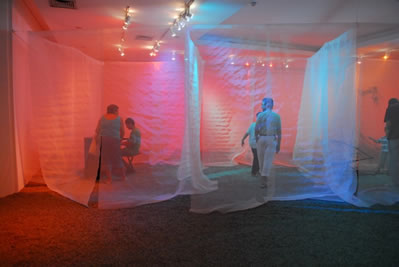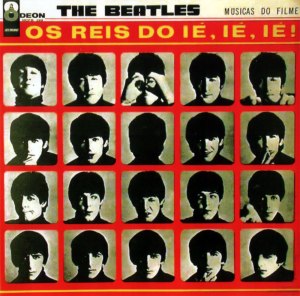from Tropicália, ou Panis et Circensis (Philips, 1968)
Lyrics:
Bat Macumba ê ê, Bat Macumba obá
Bat Macumba ê ê, Bat Macumba obá
Bat Macumba ê ê, Bat Macumba obá
Bat Macumba ê ê, Bat Macumba obá
Bat Macumba ê ê, Bat Macumba obá
Bat Macumba ê ê, Bat Macumba obá
Bat Macumba ê ê, Bat Macumba obá
Bat Macumba ê ê, Bat Macumba oh
Bat Macumba ê ê, Bat Macumba
Bat Macumba ê ê, Bat Macum
Bat Macumba ê ê, Batman
Bat Macumba ê ê, Bat
Bat Macumba ê ê, Ba
Bat Macumba ê ê
Bat Macumba ê
Bat Macumba
Bat Macum
Batman
Bat
Ba
Bat
Bat Ma
Bat Macum
Bat Macumba
Bat Macumba ê
Bat Macumba ê ê
Bat Macumba ê ê, Ba
Bat Macumba ê ê, Bat
Bat Macumba ê ê, Batman
Bat Macumba ê ê, Bat Macum
Bat Macumba ê ê, Bat Macumba
Bat Macumba ê ê, Bat Macumba oh
Bat Macumba ê ê, Bat Macumba obá
Bat Macumba ê ê, Bat Macumba obá
Bat Macumba ê ê, Bat Macumba obá
Bat Macumba ê ê, Bat Macumba obá
Bat Macumba ê ê, Bat Macumba obá
Bat Macumba ê ê, Bat Macumba obá!
No sense in translating this one, but I still find it one of the most amazing lyrics to any of these songs we’re dealing with. As you can see, the lyrics make a pattern; in fact, it is like half of the Brazilian flag. In this sense, it comes very close to Brazilian concretist poetry.
I’ve mentioned earlier the “Beba Coca-Cola” poem by Décio Pignatari. This one is similar. The concretist movement (not to confuse it with the musique concrète genre) rose to prominence in the mid-fifties when a bunch of intellectuals in São Paulo started experimenting with words and shapes. Their goal was to abolish the distinction between form and content, so in poetry they expressed themselves usually by making visual poems (later, Ferreira Gullar perfected the form) and relying heavily on word-play. It’s like they tried to use Western poetry to create ideograms (not unlike what Pound made using real ideograms in his works).
The cool thing is that concretismo had a pictorial branch too. It came to Brazil after World War II, when Brazil, through the São Paulo Biennials, started to keep up the pace with European art. Some central European painters like Max Bill exhibited their works in São Paulo and it attracted a lot of attention. So Brazilian painters adopted and developed the concretism idiom, making geometrical works where the form is indistinct from the content and where the painter’s subjectivity is — at least they thought — almost null. It’s like they were trying to reach a point zero for painting. Painter Ivan Serpa (1923-1973), for instance, was one of those that adopted this style, as were Brazilian big-names like Alfredo Volpi (1896-1988) and Hélio Oiticica (1937-1980).
What is interesting is that, while the concretos were based in São Paulo, towards the end of the 50s, the carioca (i.e., based in Rio de Janeiro) also started to develop ideas related to it. They founded the neoconcretista movement, in which the languages of abstraction were put in touch with the question of the viewer’s role in art and taking the painting from the canvas and bringing it to space, almost transforming it into a performance. Lygia Clark (1920-1988) and, once again, Hélio Oiticica were two members of this movement.
I don’t know if all this was in Gil’s head when he “composed” Bat Macumba, but it’s some of the things we can think of to better understand it.
And by the way, I didn’t mentioned, but macumba are the public offerings made to the orixás in umbanda and candomblé traditions in Brazil.



